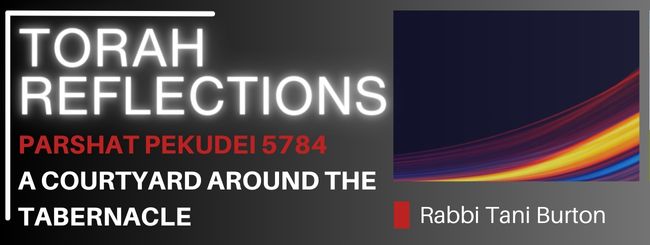בס”ד
Integrating Torah into one’s life through reflection and conversation can be an incredibly fun and engaging experience. It’s a journey of discovery, where ancient wisdom and timeless teachings come to life in our daily experiences. Through reflection, we have the opportunity to dive deep into the rich tapestry of Torah, extracting profound insights and lessons that resonate with our modern lives. The joy lies in the ‘aha’ moments, those instances when a Torah verse or story suddenly connects with our personal challenges, aspirations, and values. And when we engage in conversations about Torah with others, it becomes an interactive exploration, where diverse perspectives and interpretations enhance our understanding. These dialogues often spark excitement and intellectual curiosity, making the learning process both enjoyable and fulfilling. Torah becomes a vibrant and dynamic part of our lives, offering not just guidance but also a source of endless fascination, connection, and growth.
NOTE: Don’t feel obligated to go through every source or answer all the questions—unless you want to. Even one source, or one question will give you plenty of material for discussion and meditation. Enjoy this!
Some thoughts from the parsha
Throughout the parsha, the phrase, “as the L-rd commanded Moses” punctuates all descriptions of the various vessels of the Tabernacle. However, when we come to the courtyard surrounding the Holy of Holies, the phrase does not appear. The word צוה, tziva, “commanded” is a word that suggests that what is being commanded is urgent now and for the future (Torat Kohanim, Parshat Tzav 1). It’s a way of saying to Moses, “make sure you make this vessel exactly in accordance with My commandment”.
The Midrash informs us that until the Tabernacle was completed, the entire desert could have been an appropriate place for G-d to communicate with Moses and the Israelites, but once the Tabernacle was completed, the desert was rendered unfit for this purpose. Therefore, when the courtyard walls were erected, and thereby the Tabernacle was finished, there was no reason to use the phrase, “as the L-rd commanded Moses”, because they were built in the area surrounding the Tabernacle, which was a no-communication zone by that point.
We can learn from this the importance of holy places, such as the land of Israel, Jerusalem, and any place where people have served G-d in accordance with His Torah. That might seem limiting, but the Talmud tells us, “The Divine Presence (Shechina) has no place except the four cubits of halacha”, meaning that the observance of mitzvot that come from learning how they are supposed to be performed creates a “place”, courtyard around the Tabernacle where we can dwell with G-d.
Now, consider these questions for deep personal reflection and discussion:
- What does it mean for us when we read “as the L-rd commanded Moses”? How does it impact our own sense of following Divine guidance in our lives?
- How do the spaces we inhabit reflect our spiritual journey? Can you think of a place in your life that holds particular significance in this regard?
- When we think about the completion of the Tabernacle making the surrounding desert unsuitable for Divine communication, how does that notion resonate with times in your life when you’ve felt a shift in your spiritual environment?
- Reflecting on holy places like Jerusalem, do you feel a similar connection to any specific locations in your life that hold deep spiritual meaning?
- How do you interpret the idea that the observance of religious laws creates a space for us to connect with the Divine? Can you recall a moment when adherence to a religious practice deepened your spiritual connection?Top of Form
Shabbat Shalom!
By Rabbi Tani Burton
© Copyright, all rights reserved. If you enjoyed this article, we encourage you to distribute it further.
Our blogs may contain text/quotes/references/links that include copyright material of Mechon-Mamre.org, Aish.com, Sefaria.org, Chabad.org, and/or AskNoah.org, which we use in accordance with their policies.
